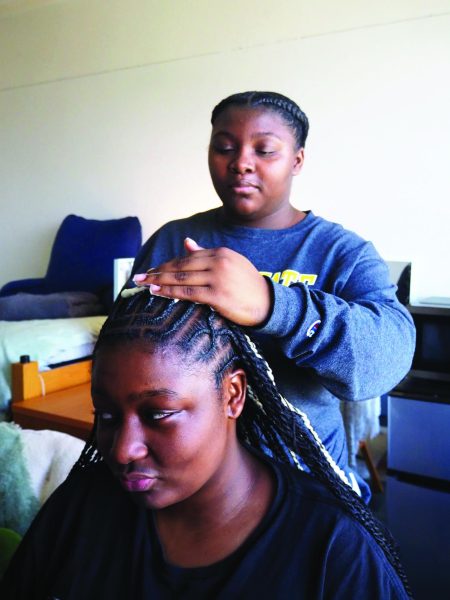Good Samaritan Law hopes to reduce reckless drinking in college-aged students
April 15, 2015
Picture one of your friends lying in a body bag, their eyes with a blank look.
Terrible image, isn’t it?
UNL’s Jacht Ad Lab created this media campaign called “you make the call.”
The campaign was created to raise awareness of the Good Samaritan Act and Acute Alcohol Intoxication. Overall, they want to educate young adults about the importance of responsible drinking and solutions if something goes wrong.
In November 2014, various colleges and supporters, such as the Nebraska Collegiate Consortium, met together for a collegiate alcohol forum. They had several panels discussing different ways in which to approach high school and college age students who have access to alcohol.
The Jacht Ad Lab presented how important it is to use social media to their advantage by promoting their “you make the call” via Twitter, Facebook and Instagram.
Their messaging strategy was to give the audience learning opportunities to both inspire, alarm and self-motivate smart drinking decisions such as making the call.
On April 2, the statewide, Good Samaritan Law (LB439) was signed by Pete Ricketts after being passed by the legislature. The policy will take effect in September.
The bottom line, if you are trying to be a good samaritan, the law will protect you. However, the context of it varies throughout the states.
According to the Nebraska Legislative Bill, the LB439 protects the person who:
•Requested the emergency medical assistance in response to the possible alcohol consumption to him/herself or another person immediately,
• Was the first person to make the request for medical assistance, or
• Remained on the scene until the arrival of medical assistance (person who made the call).
Often times, minors who may witness symptoms of alcohol poisoning may be afraid to call for help because of the authorities.
LB439 protects minors from getting a Minor in Possession if they are the one calling for medical assistance. This encourages young adults to “make the call” to save someone’s life who may be at risk of dying from alcohol poisoning.
Such was the case for sophomore Samantha Spady. The 19-year-old was found dead on a fraternity-house floor in Fort Collins, Colorado.
After drinking 30 to 40 drinks in a an 11-hour span, friends left her alone in an empty room in a fraternity house to sleep it off. It wasn’t until later that a fraternity member found her dead while giving his mother a tour of the house.
According to the National Institute of Alcohol Abuse and Alcoholism, she became one of approximately 1,400 college students between the ages of 18 and 24 who die from alcohol-related incidents each year.
Bradley McCue was another victim of alcohol poisoning. He was a Michigan State University Junior who died after celebrating his 21 birthday, and was left alone.
The family and friends of both students established their own foundation to educate students on the risks of alcohol abuse. The Sam Spady foundation and B.R.A.D. (Be Responsible About Drinking, Inc) have both been successful tools to do so.
The Wayne State College counseling center has brought the parents of both Samantha and Bradley in previous years. They talked to students to campus about their children’s stories, and the risks of binge drinking.
WSC has several different projects and ways to reach out to students to encourage safe drinking practices.
One of their biggest projects was Wildcat Wheels. The taxi service was created to reduce or eliminate the number of drunk drivers. This project has successfully reduced the number by 12 percent since 2005.
WSC and the police department have a close connection, and any violation a student may have is reported to the college. The counseling center then proceeds to require the student to take a test, which oversees their level of alcohol abuse.
The treatment for the student varies, depending on the seriousness of their alcohol consumption.
For students with a serious case, they go through B.A.S.I.C.S. (Brief Alcohol Screening Innervention for College Students), a personal sessions with the students. This gives counselors at WSC a chance to work directly with the students and provide them with a wider range of tools.
For less serious cases, students are sometimes required to take a class on college education usually held on Thursdays.








